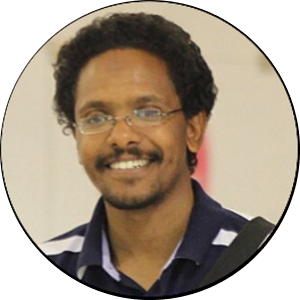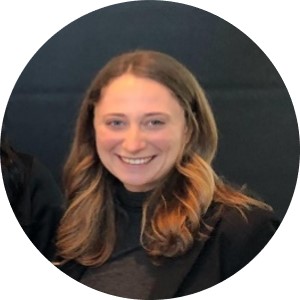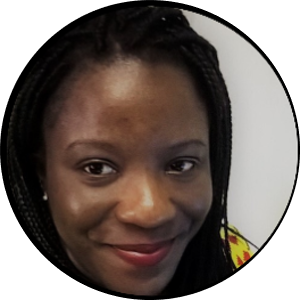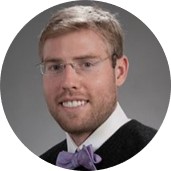- October 2025 (2)
- September 2025 (1)
- August 2025 (1)
- July 2025 (4)
- June 2025 (1)
- August 2024 (1)
- July 2024 (1)
- May 2024 (1)
- March 2024 (1)
- February 2024 (1)
- January 2024 (2)
- December 2023 (2)
- November 2023 (1)
- October 2023 (2)
- August 2023 (1)
- May 2023 (1)
- February 2023 (1)
- January 2023 (2)
- October 2022 (1)
- September 2022 (2)
- June 2022 (3)
- May 2022 (1)
- March 2022 (1)
- December 2021 (1)
- October 2021 (1)
- September 2021 (2)
- July 2021 (1)
- June 2021 (5)
- March 2021 (1)
- January 2021 (1)
- December 2020 (1)
- October 2020 (2)
- July 2020 (1)
- June 2020 (2)
- April 2020 (2)
- March 2020 (2)
- January 2020 (1)
- December 2019 (1)
- November 2019 (1)
- October 2019 (1)
- September 2019 (2)
- August 2019 (1)
- July 2019 (1)
- June 2019 (2)
- May 2019 (1)
- April 2019 (2)
- March 2019 (1)
- December 2018 (1)
- November 2018 (1)
- October 2018 (3)
- September 2018 (1)
- July 2018 (2)
- June 2018 (1)
- May 2018 (3)
- April 2018 (3)
- February 2018 (1)
- November 2017 (3)
- October 2017 (1)
- May 2017 (3)
- April 2017 (3)
- March 2017 (1)
- February 2017 (1)
- January 2017 (1)
- September 2016 (2)
- August 2016 (1)
- June 2016 (2)
- May 2016 (2)
- April 2016 (2)
- March 2016 (2)
- February 2016 (2)
- January 2016 (1)
- September 2015 (2)
- August 2015 (1)
- May 2015 (2)
- December 2014 (3)
- October 2014 (1)
- July 2013 (1)
START Center
MEET THE NEW RESEARCH ASSISTANTS AND FACULTY JOINING THE START TEAM THIS FALL

The Strategic Analysis, Research, & Training (START) Center is thrilled to introduce the ten newest team members joining our Center this fall. The team includes five PhD students in Implementation Science and Epidemiology, one master of public health in epidemiology student, and two master of business administration students.
In addition to the eight research assistants joining our team, START has also engaged two faculty leads to begin this fall. Learn more about each of these impressive new team members below.
INCOMING RESEARCH ASSISTANTS
MOHAMED ALBIRAIR, MPH, MBBS
 Mohamed Albirair is a physician from Sudan and a Global Health Implementation Science PhD student in the Department of Global Health at the University of Washington. After receiving his Master of Public Health in Global Health from the University of Washington, he continued to build his work experience in health systems research, where he joined the Public Health Institute in Khartoum and participated in evaluating Universal Health Coverage in Sudan. In his current position as an M&E officer at the Global Fund Prospective Country Evaluation Project in Sudan, he evaluates the Global Fund’s contribution to the national health indicator targets, the Global Fund’s business model, and strategic priority themes. Appreciating the importance of data, he seeks to enhance systems for data capturing and reporting, and promote the culture of data use to inform decision making for health programming. His research interests include health information system, enhancing infection control to prevent infection-related cancers, and innovations to improve country ownership to sustain and finance interventions and transition from external funds.
Mohamed Albirair is a physician from Sudan and a Global Health Implementation Science PhD student in the Department of Global Health at the University of Washington. After receiving his Master of Public Health in Global Health from the University of Washington, he continued to build his work experience in health systems research, where he joined the Public Health Institute in Khartoum and participated in evaluating Universal Health Coverage in Sudan. In his current position as an M&E officer at the Global Fund Prospective Country Evaluation Project in Sudan, he evaluates the Global Fund’s contribution to the national health indicator targets, the Global Fund’s business model, and strategic priority themes. Appreciating the importance of data, he seeks to enhance systems for data capturing and reporting, and promote the culture of data use to inform decision making for health programming. His research interests include health information system, enhancing infection control to prevent infection-related cancers, and innovations to improve country ownership to sustain and finance interventions and transition from external funds.
WEI-MING CHEN
 Wei-Ming Chen is a second-year MBA student at Foster Business School at the University of Washington. He received his bachelor’s degree in Finance from National Taiwan University. Before joining the START team, he co-founded the world’s first DIY watch brand, managing product development and finance. His business acumen and skills in cross-functional collaborations led the company to achieve the goal of growing 100% annually for two consecutive years. With a strong passion for technology and entrepreneurship, he decided to pursue his MBA at Foster to develop his next innovative start-up. During the summer of 2019, he interned at a Seattle based smart home company as a product manager to build the mobile app platform integrating numerous IoT smart home devices.
Wei-Ming Chen is a second-year MBA student at Foster Business School at the University of Washington. He received his bachelor’s degree in Finance from National Taiwan University. Before joining the START team, he co-founded the world’s first DIY watch brand, managing product development and finance. His business acumen and skills in cross-functional collaborations led the company to achieve the goal of growing 100% annually for two consecutive years. With a strong passion for technology and entrepreneurship, he decided to pursue his MBA at Foster to develop his next innovative start-up. During the summer of 2019, he interned at a Seattle based smart home company as a product manager to build the mobile app platform integrating numerous IoT smart home devices.
MORGAN FRIEDMAN
 Morgan Friedman is a second-year MBA Candidate at the Foster School of Business. She received her bachelor’s degree in Economics from the University of Texas. While in school, she interned for Deutsche Börse – MNI where she helped prepare economic indicator reports on the BRIC countries. After graduating, she worked in client service, enterprise strategy, and new product development for a start-up professional services company. Post-MBA, she intends to pursue a career in management consulting, focused on technology innovation and social impact.
Morgan Friedman is a second-year MBA Candidate at the Foster School of Business. She received her bachelor’s degree in Economics from the University of Texas. While in school, she interned for Deutsche Börse – MNI where she helped prepare economic indicator reports on the BRIC countries. After graduating, she worked in client service, enterprise strategy, and new product development for a start-up professional services company. Post-MBA, she intends to pursue a career in management consulting, focused on technology innovation and social impact.
ALDINA MESIC, MPH
 Aldina Mesic is a Global Health Implementation Science PhD student in the Department of Global Health at the University of Washington. Aldina holds an MPH in Monitoring and Evaluation and Maternal and Child Health from Boston University and a BS in Biology from Northeastern University. Aldina has worked on research studies focused on gun violence in the U.S., intimate partner violence in low income countries, and HIV among adolescents. Most recently, Aldina worked as a Senior Research Associate at Innovations for Poverty Action in Zambia. During that time, she worked on a study that sought to address barriers to safe delivery services in rural villages. Her research interests include the development and evaluation of interventions focused on shifting gendered social norms, increasing access to reproductive and maternal care, and decreasing the risk of intimate partner violence.
Aldina Mesic is a Global Health Implementation Science PhD student in the Department of Global Health at the University of Washington. Aldina holds an MPH in Monitoring and Evaluation and Maternal and Child Health from Boston University and a BS in Biology from Northeastern University. Aldina has worked on research studies focused on gun violence in the U.S., intimate partner violence in low income countries, and HIV among adolescents. Most recently, Aldina worked as a Senior Research Associate at Innovations for Poverty Action in Zambia. During that time, she worked on a study that sought to address barriers to safe delivery services in rural villages. Her research interests include the development and evaluation of interventions focused on shifting gendered social norms, increasing access to reproductive and maternal care, and decreasing the risk of intimate partner violence.
JESSIE SEILER, MPH
 Jessie Seiler is a doctoral student in the Epidemiology department at the University of Washington. She served as a Peace Corps Volunteer and later worked with USAID in Senegal, where her focus was on malaria. Jessie has also worked in behavior change communications with domestic and global health non-profits and the Centers for Diseases Control and Prevention. She earned her MPH from the Rollins School of Public Health at Emory University, where her research interests coalesced around humanitarian emergencies and race- and gender-based violence.
Jessie Seiler is a doctoral student in the Epidemiology department at the University of Washington. She served as a Peace Corps Volunteer and later worked with USAID in Senegal, where her focus was on malaria. Jessie has also worked in behavior change communications with domestic and global health non-profits and the Centers for Diseases Control and Prevention. She earned her MPH from the Rollins School of Public Health at Emory University, where her research interests coalesced around humanitarian emergencies and race- and gender-based violence.
WILLIAM SHEAHAN
 William Sheahan is a first-year MPH student in the Department of Epidemiology at the University of Washington. He received his bachelor’s degree in biology at the College of William and Mary in Virginia. While in school, he worked as part of a research team developing geospatial-referenced indices of social vulnerability to increase the effectiveness of foreign aid programs. After graduation, he worked in Kathmandu, Nepal as a summer fellow building capacity of local organizations in GIS and data analysis. Since returning to the United States, he has worked as a senior research analyst at the Lewin Group, performing analysis of domestic health care policy for clients including the Department of Veterans Affairs and the Centers for Medicare and Medicaid Services.
William Sheahan is a first-year MPH student in the Department of Epidemiology at the University of Washington. He received his bachelor’s degree in biology at the College of William and Mary in Virginia. While in school, he worked as part of a research team developing geospatial-referenced indices of social vulnerability to increase the effectiveness of foreign aid programs. After graduation, he worked in Kathmandu, Nepal as a summer fellow building capacity of local organizations in GIS and data analysis. Since returning to the United States, he has worked as a senior research analyst at the Lewin Group, performing analysis of domestic health care policy for clients including the Department of Veterans Affairs and the Centers for Medicare and Medicaid Services.
KATE TROJA, MPH
 Kate Troja is a PhD student in Epidemiology at the University of Washington. Most recently, Kate completed her Master of Public Health in Epidemiology at the UW with a concentration in Maternal and Child Health. As a master’s student, Kate worked as an undergraduate teaching assistant and her research focused primarily on high-risk HPV infection in mid-adult women. Prior to returning to graduate school, Kate conducted HIV/STI research with the Department of Defense’s Infectious Disease Clinical Research Program, where she led a multi-site, longitudinal study examining long-term neurologic effects of HIV infection. Kate’s research interests include infectious disease epidemiology, reproductive health, and the relationship between stress and infection.
Kate Troja is a PhD student in Epidemiology at the University of Washington. Most recently, Kate completed her Master of Public Health in Epidemiology at the UW with a concentration in Maternal and Child Health. As a master’s student, Kate worked as an undergraduate teaching assistant and her research focused primarily on high-risk HPV infection in mid-adult women. Prior to returning to graduate school, Kate conducted HIV/STI research with the Department of Defense’s Infectious Disease Clinical Research Program, where she led a multi-site, longitudinal study examining long-term neurologic effects of HIV infection. Kate’s research interests include infectious disease epidemiology, reproductive health, and the relationship between stress and infection.
ALISON WIYEH, MD, MSc
 Alison Wiyeh is a PhD student in Epidemiology at the University of Washington. She received a Doctor of Medicine degree from the University of Buea, Cameroon and a Master of Science in Clinical Epidemiology from Stellenbosch University, South Africa. Prior to joining the START Center, she worked as a senior scientist at Cochrane South Africa, a unit of the South African Medical Research Council. Alison’s experience includes the conduct of systematic reviews and the use of evidence from systematic reviews to inform health policies. Her research interests include epidemiologic methods, vaccine implementation, and infectious disease epidemiology.
Alison Wiyeh is a PhD student in Epidemiology at the University of Washington. She received a Doctor of Medicine degree from the University of Buea, Cameroon and a Master of Science in Clinical Epidemiology from Stellenbosch University, South Africa. Prior to joining the START Center, she worked as a senior scientist at Cochrane South Africa, a unit of the South African Medical Research Council. Alison’s experience includes the conduct of systematic reviews and the use of evidence from systematic reviews to inform health policies. Her research interests include epidemiologic methods, vaccine implementation, and infectious disease epidemiology.
INCOMING FACULTY
AKHTAR BADSHAH, PhD, MS
 Dr. Akhtar Badshah received his DipArch from the School of Architecture and Planning, CEPT, India in 1981. He received his SMArchS in 1983 from Massachusetts Institute of Technology, where he also received his PhD in Environmental Studies in 1993. Dr. Badshah is focused on exploring the changing social impact space and its impact on the nonprofit and social development space. He also looks at the intersection of technology, especially exponential technologies and its impact on societies and how nonprofits can effectively utilize these technologies. Dr. Badshah also launched Accelerating Social Transformation, an executive leadership development course for mid-career professionals working in the social impact space.
Dr. Akhtar Badshah received his DipArch from the School of Architecture and Planning, CEPT, India in 1981. He received his SMArchS in 1983 from Massachusetts Institute of Technology, where he also received his PhD in Environmental Studies in 1993. Dr. Badshah is focused on exploring the changing social impact space and its impact on the nonprofit and social development space. He also looks at the intersection of technology, especially exponential technologies and its impact on societies and how nonprofits can effectively utilize these technologies. Dr. Badshah also launched Accelerating Social Transformation, an executive leadership development course for mid-career professionals working in the social impact space.
A seasoned executive with over 30 years of experience in international development managing a corporate philanthropic program and co-founding a global nonprofit on social enterprise. Dr. Badshah has also taught architecture and urban development at MIT and is a published author, and an acclaimed international speaker. His expertise is in the area of social entrepreneurship, corporate social responsibility, information technology for development (ICT4D) and creating opportunities for youth.
BARCLAY STEWART, MD, PhD, MScPH
 Dr. Barclay Stewart is a practicing surgeon at UW Medicine, Harborview. He spent two years as an NIH–funded Northern/Pacific Fogarty Global Health Fellow working to improve surgical care in low– and middle–income countries (LMICs). Dr. Stewart’s research focused on pragmatic solutions to enhance care of the injured, burned and those in need of emergency surgery in health facilities in Ghana. He did this through systematic assessment of resource need, characterization of disease burden and modeling the effect of strategic interventions. In addition, he studied surgical epidemiology in complex humanitarian emergencies and from population–based studies of surgical need and injury burden in Nepal, Sierra Leone, and Iraq. Dr Stewart is pursuing a career in trauma, burns, and acute care surgery with attention on LMICs and aims to bring evidence–based decision making to humanitarian aid and surgical capacity development in LMIC health systems.
Dr. Barclay Stewart is a practicing surgeon at UW Medicine, Harborview. He spent two years as an NIH–funded Northern/Pacific Fogarty Global Health Fellow working to improve surgical care in low– and middle–income countries (LMICs). Dr. Stewart’s research focused on pragmatic solutions to enhance care of the injured, burned and those in need of emergency surgery in health facilities in Ghana. He did this through systematic assessment of resource need, characterization of disease burden and modeling the effect of strategic interventions. In addition, he studied surgical epidemiology in complex humanitarian emergencies and from population–based studies of surgical need and injury burden in Nepal, Sierra Leone, and Iraq. Dr Stewart is pursuing a career in trauma, burns, and acute care surgery with attention on LMICs and aims to bring evidence–based decision making to humanitarian aid and surgical capacity development in LMIC health systems.
Did you enjoy this aricle? Share it Facebook Google+ LinkedIn Twitter